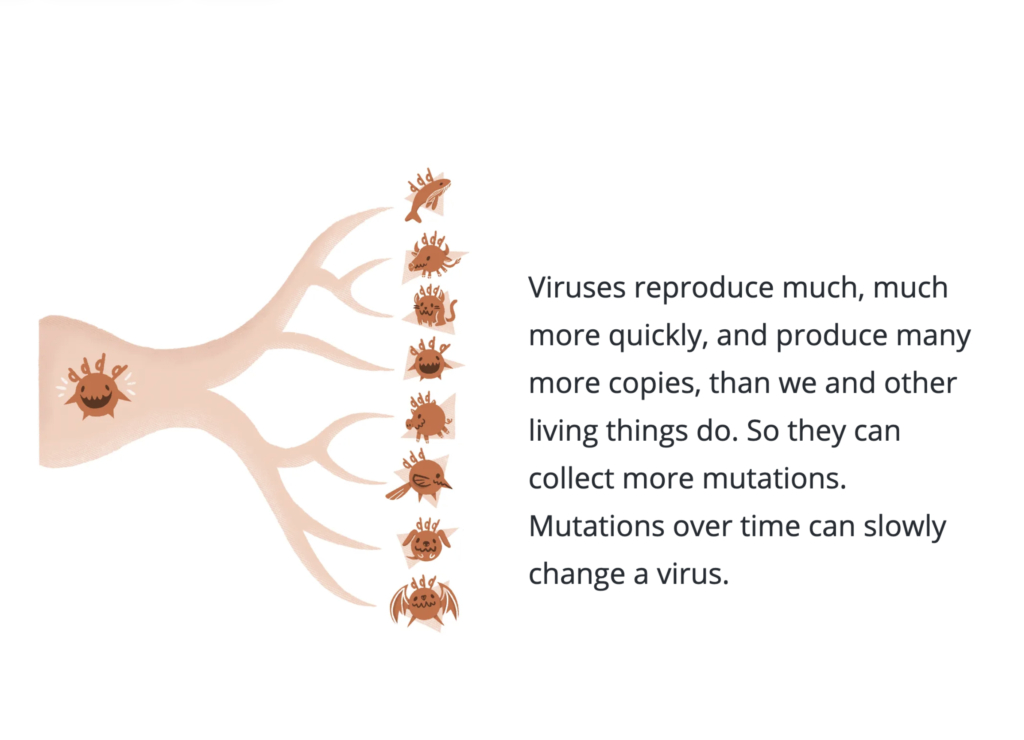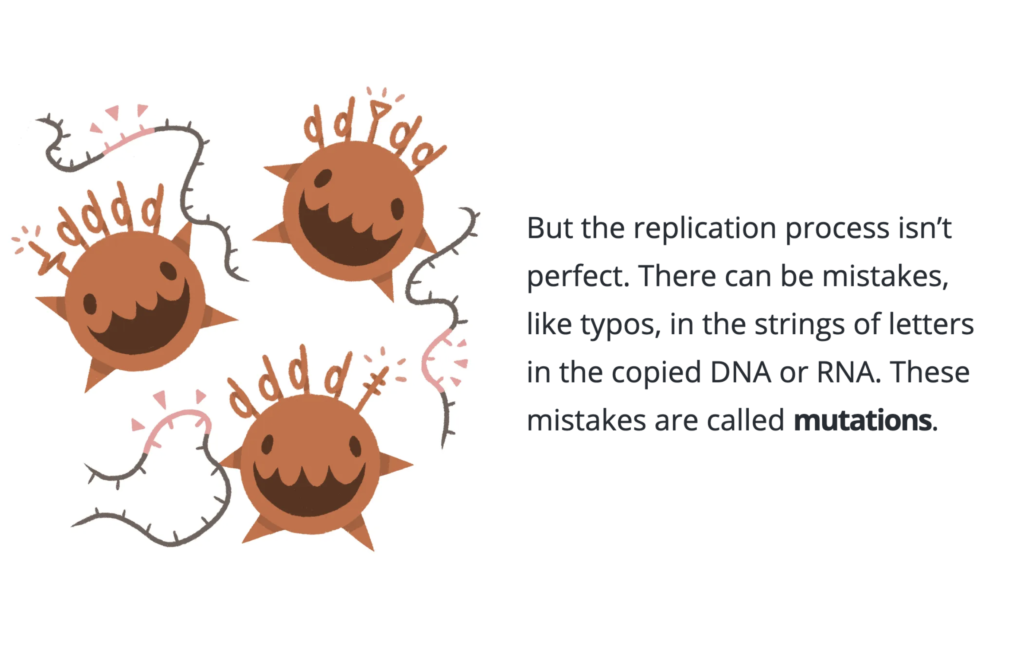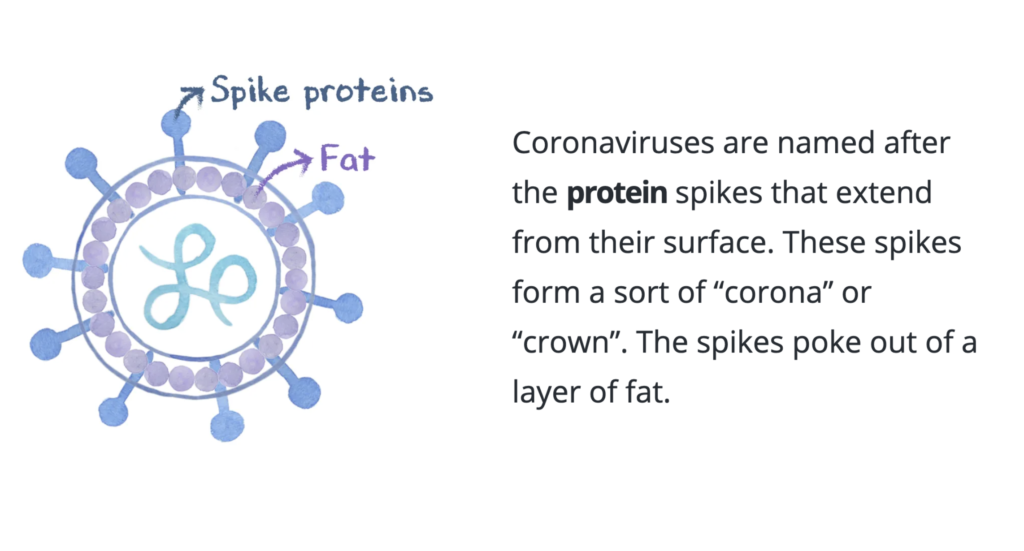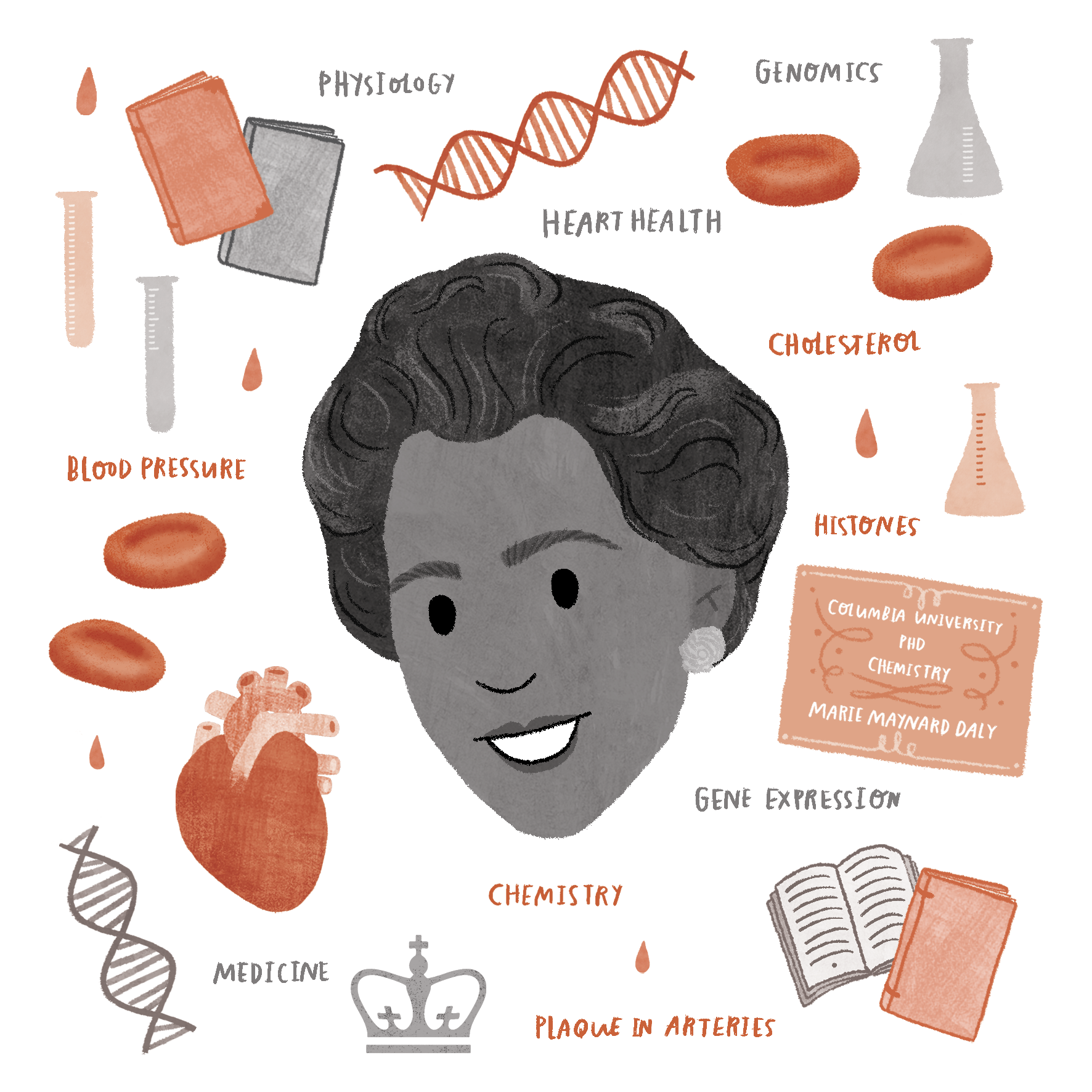Viruses mutate, and the virus that causes COVID-19 is no exception. But what do these mutations mean for us? Below, Shauna Bennett, a science communicator with a PhD in virology, covers some of the basics about the new COVID-19 variants and what they might mean for you. Shauna helped to write our illustrated Lifeology course on virus mutations, which is a great place to start if you want to understand more about the science of the new COVID-19 variants.

Visual by Jeff Pea from “Viruses Mutate” Lifeology course
By Shauna Bennett, PhD
You’ve seen some talk about a “new COVID-19 virus mutation” circulating in the news — so before you get too anxious, let’s pick this apart.
What is this SARS-CoV-2 variant?
The “UK variant” or B.1.1.7 is a version of the SARS-CoV-2 virus that has several changes, or mutations, in its genetic code. From our course Viruses Mutate, you know that mutations in this type of virus are normal and expected! Scientists have been tracking any mutations in the virus that causes COVID-19 since the start of the pandemic. This one, however, has caught more attention because they found it in a lot of patients in the UK. There is another similar variant that was found in South Africa.

Visual by Jeff Pea from “Viruses Mutate” Lifeology course
Learn more about COVID-19 variants on the CDC website here.
What should I do?
The same things you have already been doing: continue being careful, wearing your mask, staying physically distant, avoiding groups of people and only gathering in well-ventilated spaces.
If you get the chance to get the vaccine, take it. There is currently no reason to believe the vaccine would not protect against all the virus variants that cause COVID-19.
For more information about how vaccines work, check out this Lifeology course.
Why is it called a “variant” and what makes it interesting?
A variant is a version of a virus strain that has changes in its genetic code, but not enough changes to be a new virus. Like we said, changes often pop up in the genetic code of RNA viruses like SARS-CoV-2. Most of these changes don’t lead to drastic differences in how the virus behaves or affects people.
For the new variants, scientists are still figuring out how they differ. Scientists in the UK found the variant B.1.1.7 in a large percentage of patients in London, and the number of new mutations in the virus genome was surprising. One of the concerns is that there are mutations in the spike protein of the virus. The spike protein is the part of the virus that interacts with the body and with the immune system.

Visual by Elfy Chiang from “What does the coronavirus do in my body?” Lifeology course
Scientists are still looking into whether the new SARS-CoV-2 virus variants may be slightly different in terms of how they are affected by current therapies and vaccines and whether the disease they cause might be different.
Right now, there is nothing conclusive and nothing obviously different. Some scientists are hypothesizing that B.1.1.7 might spread between people easier than other versions of SARS-CoV-2, because they have seen so many cases of it. All in all, scientists don’t have enough data yet to make any predictions.
A few final notes
One of the best ways to avoid any new virus strains from emerging is to prevent infections. Viruses cannot accumulate a change in their genetic material unless they replicate in a host (person or animal). Some scientists believe the recent mutations in the UK variant arose in a person who was infected for a long period of time (called chronic infection). The long infection gave it a chance to gain mutations that helped it escape from that person’s weak immune system.
So, the best thing that you can do is help to prevent COVID from spreading, as you have been! There is every reason to still have hope that things will be better soon if we prevent virus spread.
Sources/further reading and listening:
- This Week in Virology Podcast Episode #697: The Sky is Not Falling
- Science Magazine: Mutant coronavirus in the United Kingdom sets off alarms, but its importance remains unclear
- COG UK: Update on new SARS-CoV-2 variant and how COG-UK tracks emerging mutations
- Expert reaction to the new variant of SARS-CoV-2
- Pre-print (not peer-reviewed yet) study on the transmissibility and severity of the new COVID-19 variants





